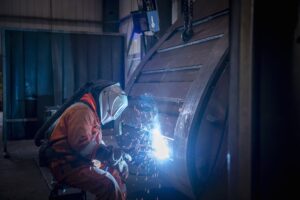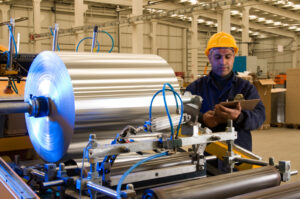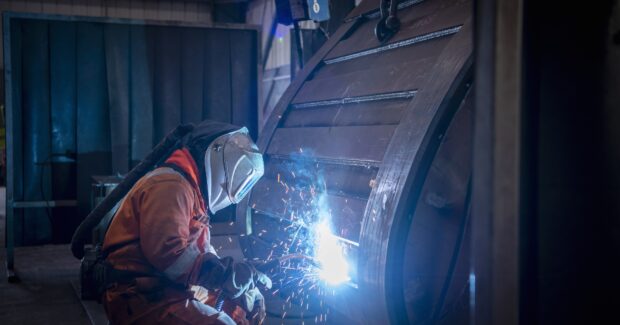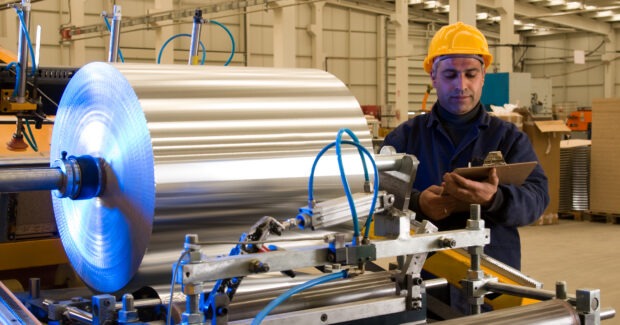AI’s Impact on Metalworking: Empowering Frontline Workers with Intuitive Software
By simplifying software and making it more intuitive, AI will empower frontline workers to be more productive, efficient and engaged.
Posted: November 16, 2024
What does artificial intelligence (AI) mean for the metalworking industry, and how can workers and leaders best prepare for the changes ahead? While the sector is still in the early stages of AI adoption, understanding its potential and preparing for its impact will be crucial for future success.
AI’s real power lies in empowering workers on the front lines by making software more intuitive and user-friendly. This focus on simplifying and enhancing user experiences will be core to AI’s success in the field. For the metalworking industry, AI isn’t just about automation — it’s about giving workers the tools they need to excel.
Elevating the Industry

Many metalworking companies have already transitioned from manual processes to modern, cloud-based ERP systems, but AI is poised to take this transformation further. Large language models, a powerful subset of AI, can rapidly learn and navigate complex ERP systems in days — something that would take a human operator years to master
By integrating AI into ERP systems, companies can streamline processes like lead times, pricing thresholds, and delivery requirements. Once fully integrated, AI essentially becomes a subject matter expert, handling tasks more efficiently and enabling workers to perform their roles with greater ease and accuracy.
AI for Efficiency and Empowerment
The potential return on investment for manufacturers is significant. Tasks that once took days or weeks will soon be completed in hours. In the past, tasks like supplier management required employees to gather data manually, enter it into systems, and communicate via email — a time-consuming process. With AI, this can all be automated, reducing the time required from days to mere hours. AI’s ability to retrieve and analyze data instantly not only improves workflow efficiency but also empowers workers to focus on more complex, value-adding activities.
Imagine a situation where a customer requests information about a part that was shipped two weeks ago. Previously, this would have involved filing an IT ticket and waiting for a response. Now, AI can retrieve that information instantly, saving time and enabling workers to focus on higher-priority tasks.
AI also takes over real-time tasks such as supplier interactions, offering instant feedback, and updating delivery timelines — all while learning from the ERP system. This allows human teams to concentrate on strategic decisions and innovation, fostering a more efficient and collaborative workplace.
Enhancing Worker Experience on the Shop Floor

We’re heading into a future where AI enhances the day-to-day experience for workers. In metalworking environments, where distractions from cumbersome technology can be hazardous, AI simplifies interactions between workers and machines. With more intuitive, conversational interfaces, AI reduces the need for workers to learn complex software or struggle with manual data entry.
Instead of focusing on learning the intricacies of new systems, workers will engage with AI as they would with a colleague, minimizing retraining time and improving overall shop-floor efficiency. By making the technology easier to use, AI helps create safer, more efficient, and more satisfying work environments.
AI Adoption: Challenges and Opportunities
The metalworking industry has traditionally been slower than others to adopt new technologies, but AI presents an opportunity to leapfrog certain digital transformation stages. Manufacturers that embrace AI early will unlock predictive maintenance, automated decision-making, and streamlined production processes — key innovations that will define the future of metalworking.
Despite AI’s promise, there are hurdles to adoption, including concerns about technology and the time required for digital transformations. However, companies that address these challenges will not only realize significant returns on investment but will also lead the next wave of manufacturing innovation.
The Road Ahead: AI’s Role in Empowering Metalworkers
As AI becomes more integrated into operations, metalworking companies will experience reductions in repetitive tasks and improvements in decision-making. Workers will no longer be bogged down by routine processes but will instead be empowered to focus on innovation and higher-level problem-solving. This shift will boost job satisfaction, foster professional growth, and ultimately drive business success.
AI is about more than just automation; it’s about making technology work for people. By simplifying software and making it more intuitive, AI will empower frontline workers to be more productive, efficient and engaged. Companies that invest in AI today will not only gain a competitive edge but also help shape the future of metalworking.


















